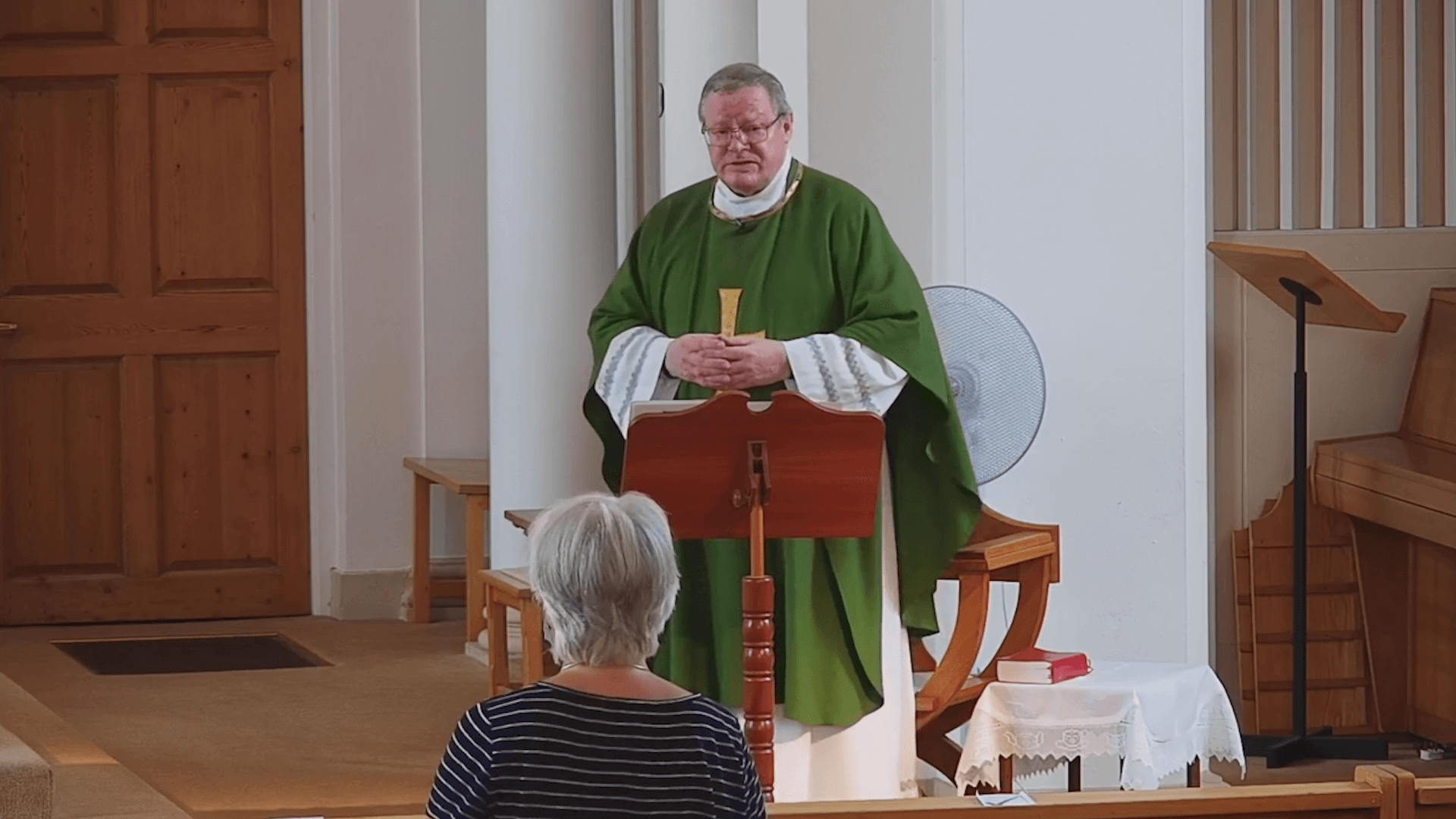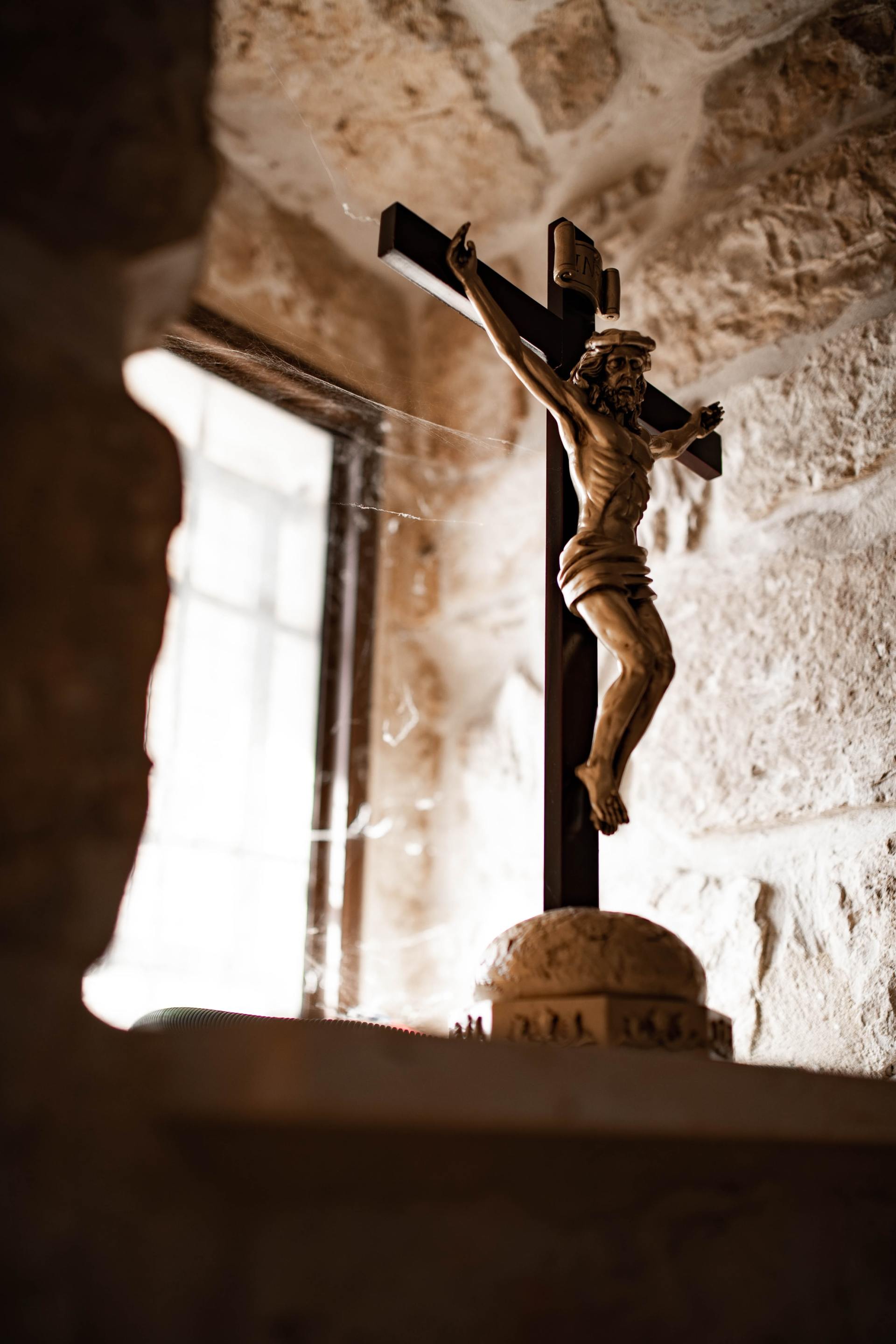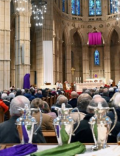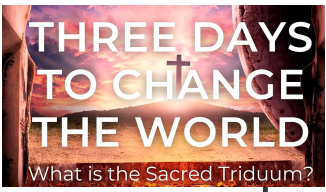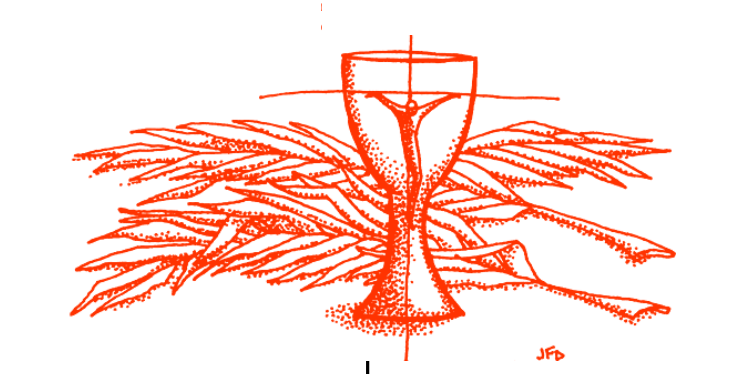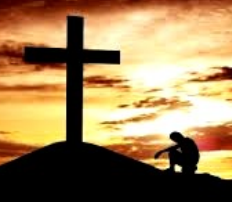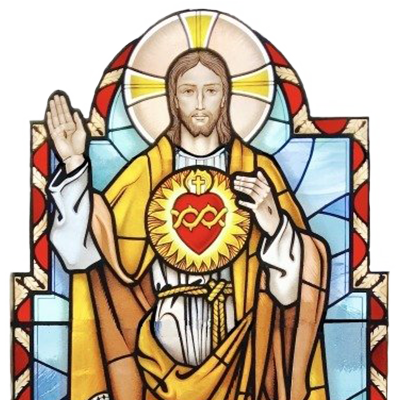22nd August 2021
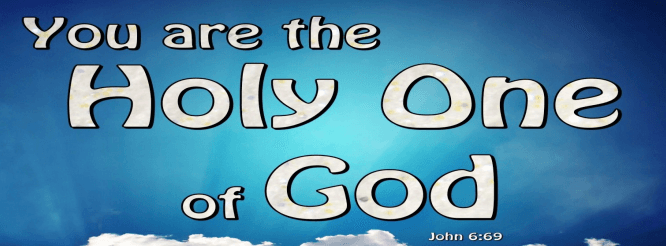
The time for decision-making has come for those listening to Jesus’ ‘bread of life’ discourse. It is not only his opponents, but his followers, his own disciples, who are scandalised by his words. They complain that it is an intolerable teaching, too hard, too offensive to accept. They have been nourished at the table of Torah wisdom and are just not prepared to accept any new spiritual food. Surprisingly, after all the talk about “flesh,” Jesus now says that it has nothing to offer.
But here Jesus is saying that from a purely human point of view (especially one’s own) what he has been saying makes no sense. He will not conform to the expectations of those who want to judge him according to their own superficial experiences. Jesus descended from heaven to speak the words of spirit and life in a way no one else can (c.f. John 3:31-36), but some of those listening to him would like to see him ascend to heaven as the Jewish tradition held that their revelatory ancestor Moses had ascended. Jesus leaves his followers free, neither asking them to stay nor giving them permission to go. Their choice, this crisis moment, is personally theirs . . . And ours.
Then Jesus asks those who are still with him one of the most moving of gospel questions: “Do you also want to leave?” It is Simon Peter who answers, and for the first time in St John’s gospel someone explicitly accepts Jesus for the most foundational and significant of reasons: because he is the Holy One of God who offers them the words of eternal life. This weekend’s gospel finishes here, no doubt to conclude the bread of life discourse on a positive note, but we also need to hear the last two verses, to realise that even at the moment of this profession of profound faith (John 6:71-72), the Church is haunted by the reality of betrayal that lurks in the background and is always a tragic possibility for any of Jesus’ disciples. One night Peter will huddle in the dark corner of denial, and Judas will betray his master. To continue with Jesus is an ongoing struggle with the possibility of right or wrong decisions for or against him.
There are times when we, too, may have felt like walking away from the Eucharist: tired of words about it that seem empty of spirit, bored with poor celebrations of it, some of us leaving because change is too slow, others because it is too fast. Basically, we are like the people listening to Jesus in this gospel, and like the community for whom John wrote his gospel: we can be tempted to want Jesus to conform to our expectations of how he should be present in and to his Church in word and sacrament; we are intolerant of his willingness to be present in the poverty of so many Eucharistic liturgies - which is not to say that we do not do all we can to have good liturgies. But perhaps our greatest betrayal is our failure to realise that when we are not in communion with our brothers and sisters we fail to be in communion with the Body of Christ. Peter’s response - “Master, to whom shall we go?” - faces us with he memory of the Servant Jesus who went to death, who gave his full human reality, his body and blood, for us, so that we might share in his eternal risen life.
